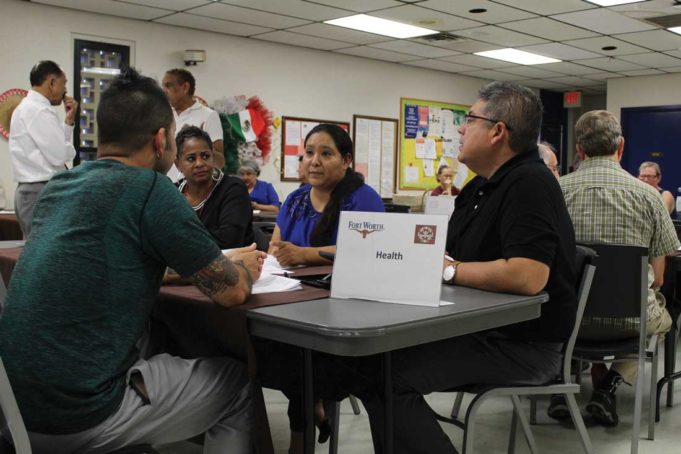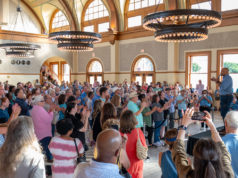Ending systemic racism within the city was never the stated goal of the Race and Culture Task Force, but if harmony erupts, who’ll be complaining?
The Fort Worth City Council appointed the group last year to consult with the community and draft recommendations to establish an “inclusive Fort Worth” for all residents, according to the city’s website. The volunteers are in the final stages of proposing policy changes regarding unresolved racial issues plaguing the 15th-largest U.S. city.
After 14 months and many conversations with locals, retired Fort Worth Star-Telegram columnist and task force chairman Bob Ray Sanders said he is “pleased” with the proposals his team is sending to City Hall in two months. His group, with the help of city staff, has documented various causes of economic disparity and evidence of systemic racism.
Among the recommendations is the creation of a citizen review board with the authority to investigate allegations of police abuse independently. Other proposals include increased job training programs for minorities, the development of intervention programs to lower the number of black students who are disproportionately suspended from the Fort Worth school district, and the allocation of financial incentives for childcare centers that prioritize education in minority communities.
“Many in this community don’t respect the [police] investigation process,” Sanders said at a recent task force meeting at the Diamond Hill Community Center, referring to the 2016 arrest of black mother Jacqueline Craig and her two black daughters by a white Fort Worth police officer. That incident and resulting uproar from video footage of the arrest prompted the task force’s creation.
A citizen review board will test city leadership’s willingness to address criminal justice concerns in the black community, Sanders said. At Diamond Hill, task force members and city staffers listened as a dozen locals sought to decipher the 80 pages of draft recommendations.
City communications officer Janice Thompson-Burgess and task force co-chair Rosa Navejar discussed the need for increased public transportation funding. Lack of mobility is an economic barrier facing minority communities, Navejar said.
“We can’t keep building parking lots,” she said, referring to Fort Worth’s reliance on individual motor vehicles rather than large-scale public transportation.
The task force is recommending an increase in funding for the Fort Worth Transportation Authority (best known for its fleet of city buses) from its current half-cent city sales tax allotment to one cent. The boost in revenue wouldn’t be limited to buses, Navejar added. As Fort Worth’s transportation needs grow, so do its needs for a diverse, multi-modal approach to connecting workers to their places of employment, she said.
Also high on the list of recommendations is the prioritization of black and Hispanic neighborhoods for city resources to fix broken sidewalks, replace dead streetlights, and refurbish roads.
The causes of economic disparity were already well known to the people living in Stop Six, Como, the South Side, and other predominantly black and Hispanic neighborhoods. We hope this process isn’t a one-off initiative but rather a long-term commitment to solving the systemic problems that still divide our city along racial lines.
City council members will vote on the task force’s final proposals in early December.












